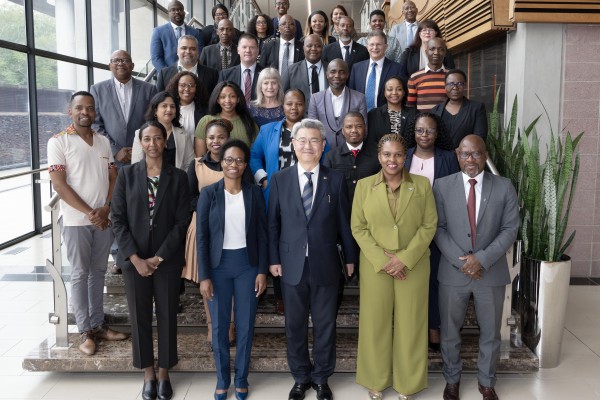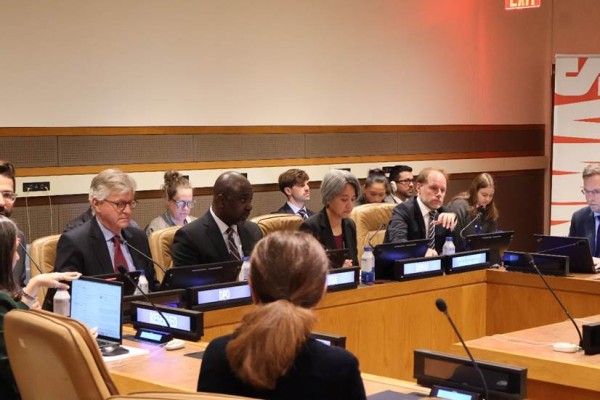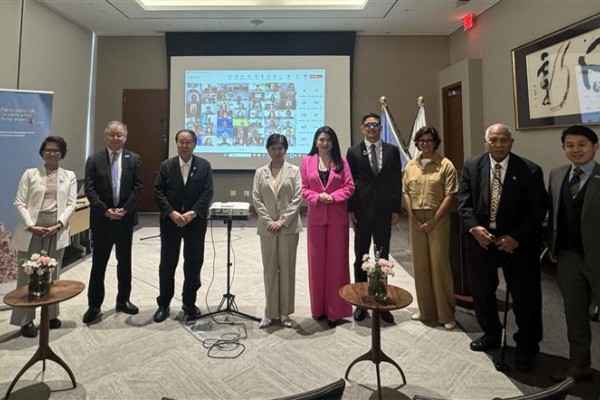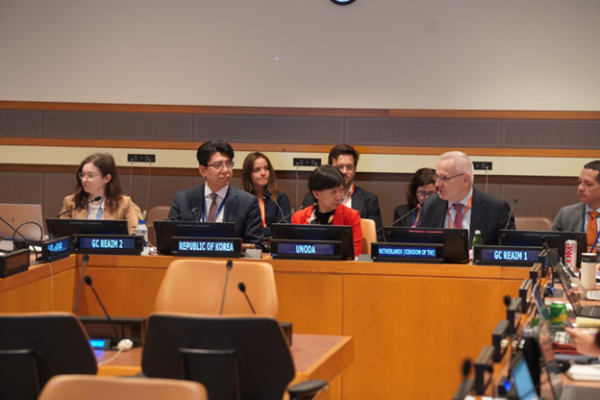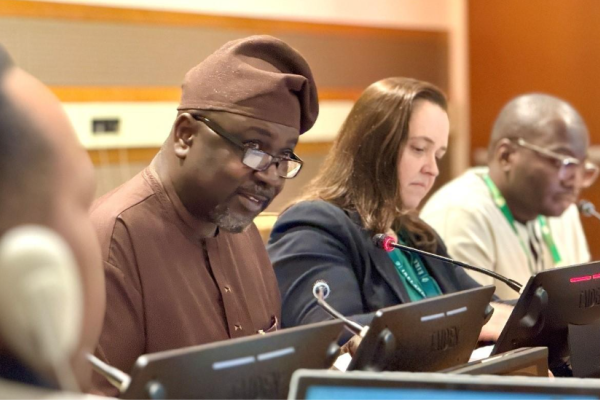On 22 October, the UN Office for Disarmament Affairs (UNODA) and the Department of Peace Operations (DPO)/UN Mine Action Service (UNMAS) co-hosted a side event on the margins of the United Nations General Assembly’s First Committee and Fourth Committee to amplify the Secretary-General’s campaign on Humanitarian Disarmament and Mine Action. The event brought together representatives from 46 Member States and key stakeholders from across the United Nations system and civil society.
The side event emphasized the strategic convergence of insights from the Secretary-General’s reports on Mine Action, on Protection of Civilians, and on Rebalancing Military Spending. It provided a forum for dialogue on the intersection of mine action, humanitarian disarmament, protection of civilians and military spending.
Mr. Jean-Pierre Lacroix, Under-Secretary-General for Peace Operations, opened the event, underscoring the important role of mine action and humanitarian disarmament in peacekeeping and the protection of civilians. Mr. Lacroix highlighted that global military spending reached 2.7 trillion USD in 2024, diverting resources from prevention, recovery, and sustainable development, while civilians continue to bear the brunt of conflict, particularly from explosive weapons in populated areas. He stressed mine action as a strategic investment in resilience, stability, and recovery that turn the Secretary-General’s disarmament vision into tangible, life-saving results. He also echoed the concern expressed by the Secretary-General over recent withdrawals by a number of States Parties from the Anti-Personnel Mine Ban Convention and the Convention on Cluster Munitions, urging States to remain committed.

Credits: Tiantian Gong (from left to right) Mr. Jean-Pierre Lacroix, Under-Secretary-General for Peace Operations, Mr. Ade Ebo, Director & Deputy to the High Representative for Disarmament Affairs, ODA, and Ms. Rita Gunaryati Lubis, Deputy Director, UNMAS, Mr. Aurelien Buffler, Chief of the Policy, Norms and Values Section, OCHA.

Credits: Tiantian Gong
The panel featured Mr. Adedeji Ebo (ODA), Ms. Rita Gunaryati Lubis (UNMAS), and Mr. Aurelien Buffler (OCHA).
Mr. Adedeji Ebo, Director & Deputy to the High Representative for Disarmament Affairs, expressed concern over the growing pressure on the global legal framework that has protected civilians from indiscriminate weapons for decades. He stressed that “lasting security cannot be achieved through military spending alone”, recalling Article 26 of the UN Charter and underscoring the need to invest in people, human rights and institutions. He warned that the continued use, development, and stockpiling of inhumane weapons cannot be reconciled with the conscience of humanity and echoed the Secretary-General's campaign call for renewed commitments, stronger partnerships, and concrete actions, especially ahead of the upcoming Meeting of States Parties to the Anti-Personnel Mine Ban Convention.
Ms. Rita Gunaryati Lubis, Deputy Director of UNMAS, stressed the increasing need for mine action due to growing conflict worldwide and in response to explosive ordnance contamination in over 57 countries and territories. She emphasized that while mine action can appear technical and complex, it is at its core “a people-centered endeavor” to save lives, enable humanitarian access and support development. She called for increased financial support and bolstered localization of mine action efforts.
Mr. Aurelien Buffler, Chief of the Policy, Norms and Values Section at OCHA highlighted the severe and long-term harm and devastating impact caused by explosive weapons on civilians in ongoing conflicts such as Gaza and Sudan. He urged Member States to endorse and implement the Political Declaration on Explosive Weapons in Populated Areas, to address emerging threats like autonomous weapons systems, while reinforcing legal protections and humanitarian norms, and strengthening protection of civilians.
The panel discussion and subsequent Q&A highlighted broad concern over recent withdrawals from key humanitarian disarmament treaties and the growing gap between rising military expenditure and declining support for mine action and related humanitarian efforts. Delegations stressed the need to reinforce political partnerships, safeguard existing norms and treaties, and strengthen the protection of civilians. Several interventions underscored national experiences with contamination, the integration of mine action into development strategies, and the essential role of civil society in shaping and sustaining the normative framework. Participants also pointed to the wider humanitarian consequences of weapons, reaffirmed support, financial and operational, for mine action in affected regions, and emphasized that even a small reallocation of global military budgets could ease current humanitarian crises.
In response, speakers underscored the need for enhanced oversight and transparency of military budgets and reiterated that mine action remains essential for humanitarian access. They also stressed the importance of safeguarding and upholding established humanitarian disarmament norms and treaties, while scaling the impact of mine action through integrated programming with humanitarian partners.
In closing, Ms. Mélanie Regimbal, Chief of UNODA’s Geneva Branch, highlighting existing humanitarian disarmament instruments as tools to “provide solutions with demonstrated results” to save lives and advance peace, security and human rights. She urged States to uphold and reinforce these Conventions and to work collectively to better link disarmament with the humanitarian agenda.
